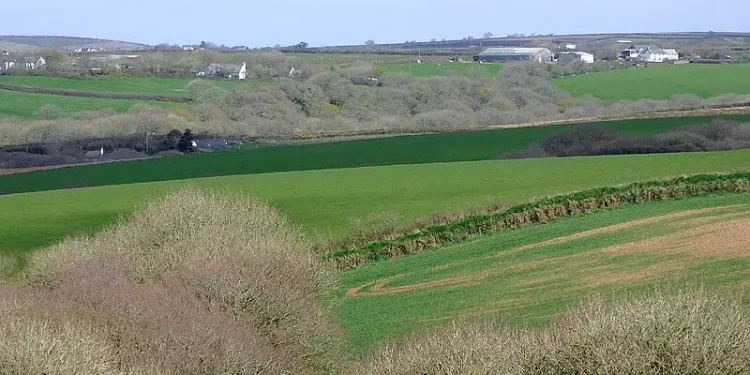Farmers in Devon and Cornwall are being urged by the Environment Agency to cultivate compacted soil and plant winter crops by 15 October to mitigate soil run-off and flooding risks during heavy winter rains.
This initiative aims to protect farmland productivity, reduce pollution, and safeguard communities downstream.
Urgent Call for Action
The Environment Agency has issued a pressing call for farmers in Devon and Cornwall to prepare their land ahead of the winter season.
With the potential for heavy rains, cultivating compacted soil and establishing winter crops such as grass, cover crops, or winter cereals by mid-October is crucial.
This proactive approach aims to stabilize soil with roots that improve water infiltration, thereby reducing the risk of soil erosion and flooding.
Challenges Faced by Farmers
- Cornwall experienced a mix of sun and rain this summer, while Devon faced dry conditions leading to hard fields.
- Compacted soil on sloping land increases the risk of valuable topsoil being washed away during heavy rains.
- Farmers must ensure sufficient slurry storage capacity to prevent pollution from spreading slurry in wet conditions.
Sustainable Practices in Focus
Local farmers like Mark Button and Sam Trudgian are setting examples with sustainable crop rotation practices.
They alternate maize with winter barley and undersow maize with ryegrass to protect soil health. These methods not only reduce erosion but also enhance financial viability by decreasing fuel costs associated with heavy machinery passes.
The Importance of Timely Action
- Establishing winter crops early helps maintain food production stability.
- Sustainable rotations contribute to climate resilience while supporting rural livelihoods.
- The Sustainable Farming Incentive (SFI) supports environmentally friendly farming practices like cover cropping.
Expert Insights
Laura Bentley from the Environment Agency emphasizes that autumn cultivation is critical for transforming compacted ground into permeable soil. She notes that “winter is our busy period as heavy rain falling on bare soil causes run-off,” highlighting the importance of timely action.
Meanwhile, farmer Mark Button shares his experience:
“We average 1300mm of rain… we opted to follow the maize crop with winter cereals.”
Additional Reading
A Final Thought
This initiative underscores the importance of proactive land management in mitigating environmental risks. By adopting sustainable practices like crop rotation and timely cultivation, farmers can protect their livelihoods while contributing positively to local ecosystems.
The collective effort will help ensure food production stability amid changing weather patterns in South West England.
Sources: UK Government, Wired-Gov, Cornwall Landscape, Farm Carbon Toolkit, Environment Agency, and GOV.UK Sustainable Farming Incentive guidance.
Prepared by Ivan Alexander Golden, Founder of THX News™, an independent news organization delivering timely insights from global official sources. Combines AI-analyzed research with human-edited accuracy and context.








